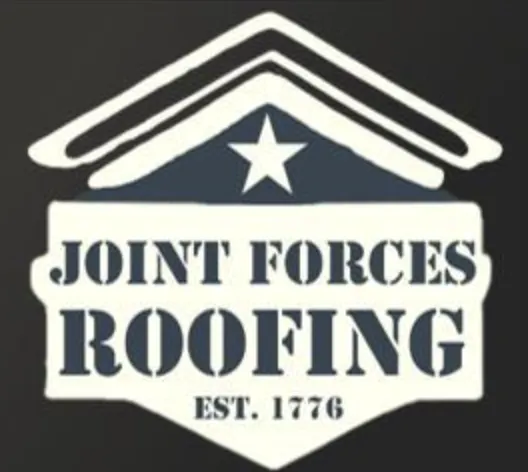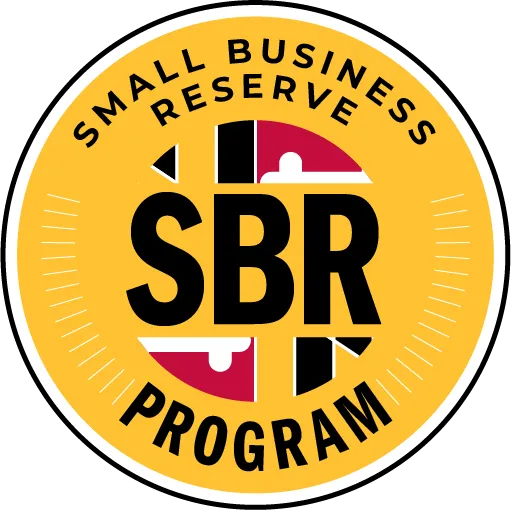
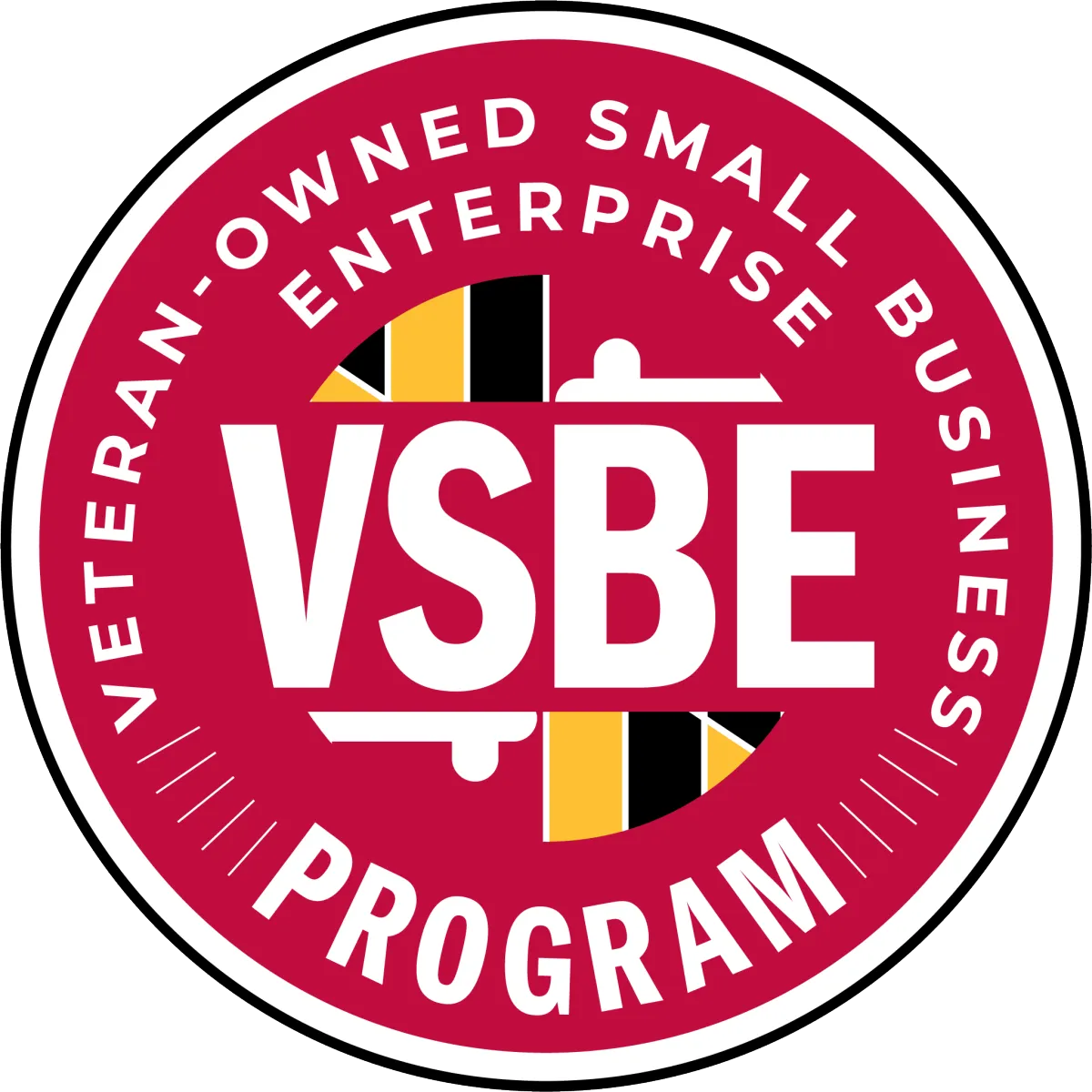


COMMERCIAL ROOFING
YOUR ROOF, OUR MISSION
Strength, Integrity, and Quality You Can Trust!
Proudly Veteran-Owned, Providing Roofing Solutions That Stand the Test of Time.
Make sure this header passes the grunt test!
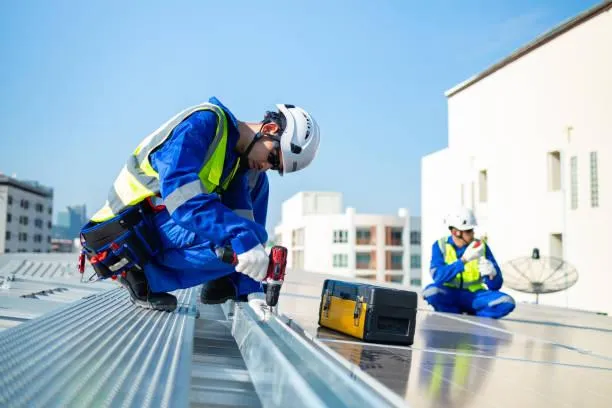
OUR SERVICES
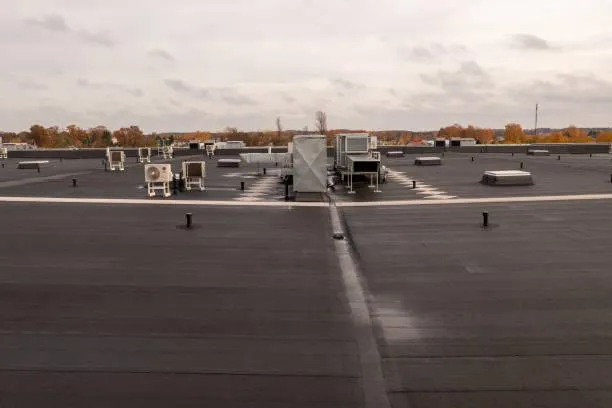
Built-Up Roofing (BUR)
Composition & Installation: Consists of alternating layers (plies) of bitumen (asphalt or coal tar) and reinforcing fabrics (e.g., roofing felts or fiberglass). Typically finished with a top layer of gravel or a reflective coating.
Advantages: Extremely durable when properly installed; proven track record for water resistance; multiple layers create redundancy.
Considerations: Heavier than many other systems; installation involves hot asphalt or tar, which can be messy and requires specialized labor.
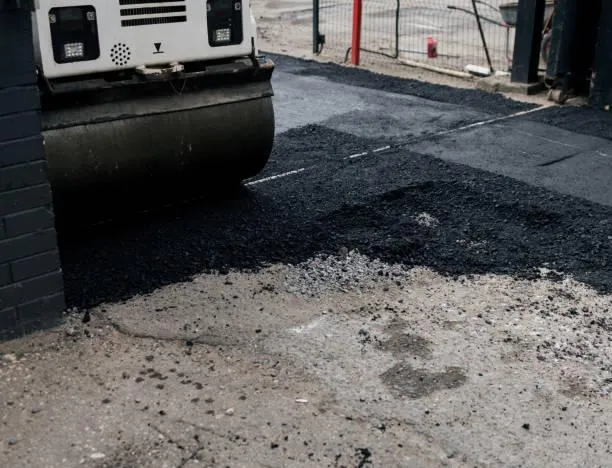
Modified Bitumen
Composition & Installation: An evolution of BUR that uses asphalt modified with plastic or rubber polymers. Comes in rolls and may be torch-applied, self-adhered, or applied with hot asphalt.
Advantages: Easier and cleaner to install compared to traditional BUR; good flexibility and durability; often lower cost than many single-ply membranes.
Considerations: Can still involve open flame (torch) or hot asphalt application, requiring experienced installers; seams must be carefully sealed to prevent leaks.
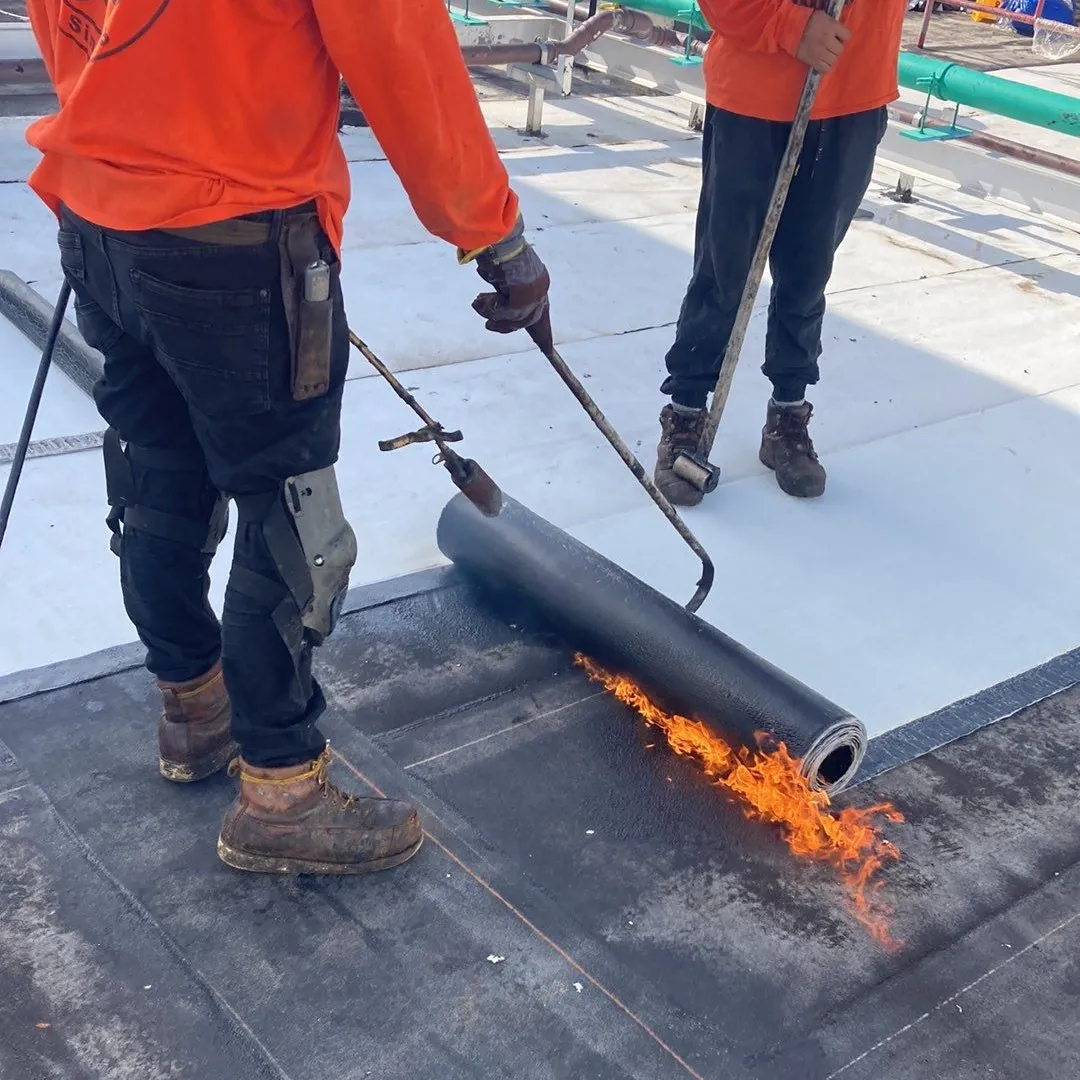
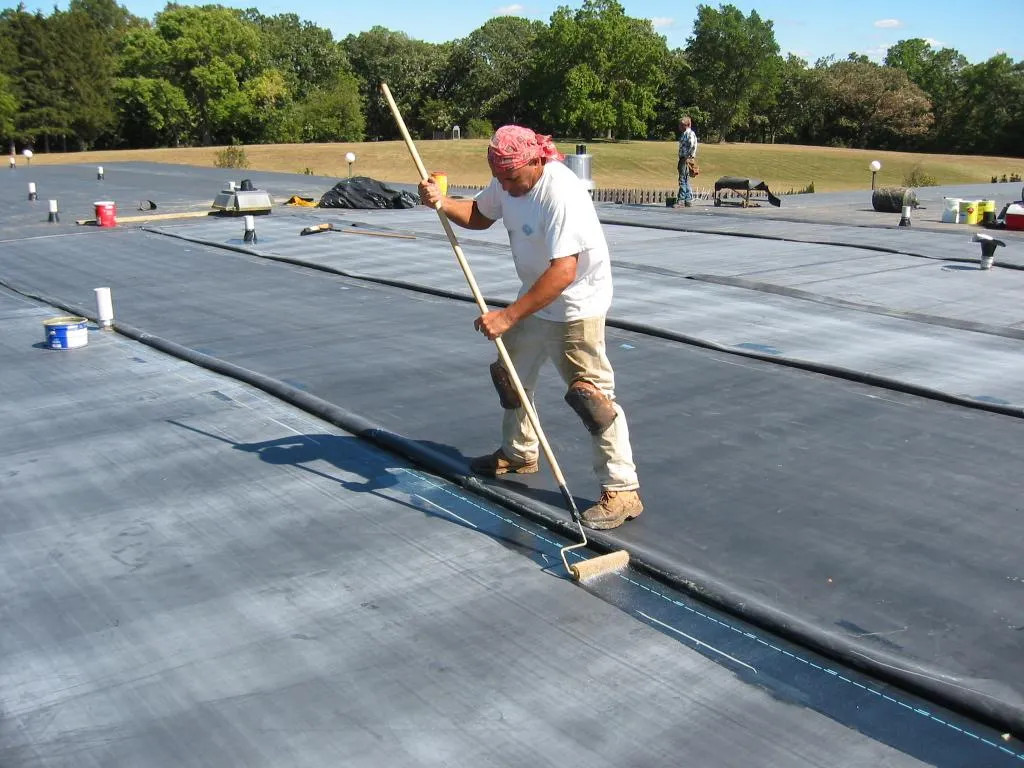
EPDM (Ethylene Propylene Diene Monomer)
Composition & Installation: A synthetic rubber membrane available in large sheets (commonly black, sometimes white). Typically adhered with adhesives or fastened mechanically, and sometimes ballasted (weighted down with gravel).
Advantages: Good longevity; relatively simple installation; good resistance to UV rays and varying weather conditions.
Considerations: Seams are sealed with adhesives or seam tape and must be installed carefully; black EPDM can absorb more heat (unless a white or reflective coating is used).
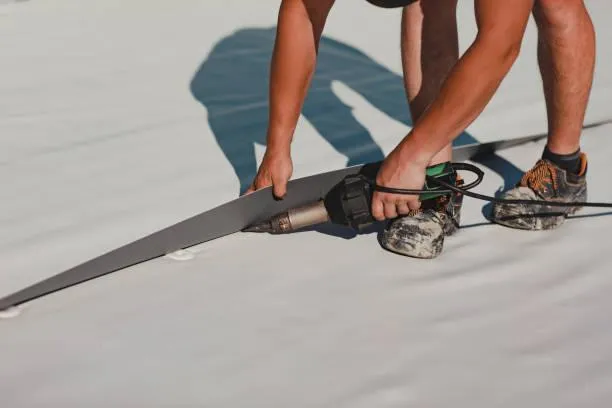
TPO (Thermoplastic Polyolefin)
Composition & Installation: A single-ply thermoplastic membrane that is heat-welded at the seams. Usually white and reflective to improve energy efficiency.
Advantages: Popular for its reflective surface (helps reduce cooling costs); heat-welded seams create a strong bond; relatively cost-effective among single-ply systems.
Considerations: Quality and formulation can vary across manufacturers; proper installation is crucial to avoid seam failures.

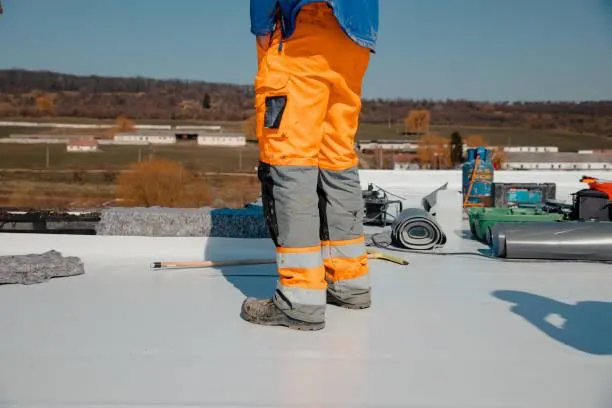
PVC (Polyvinyl Chloride)
Composition & Installation: A single-ply thermoplastic membrane similar to TPO, with seams heat-welded. Known for excellent chemical resistance and reflective white surface.
Advantages: Strong seam strength; resistant to chemicals (e.g., grease, oils), making it popular for restaurants or industrial buildings; high reflectivity for energy savings.
Considerations: Typically more expensive than TPO and EPDM; requires professional installation to ensure durable seams.
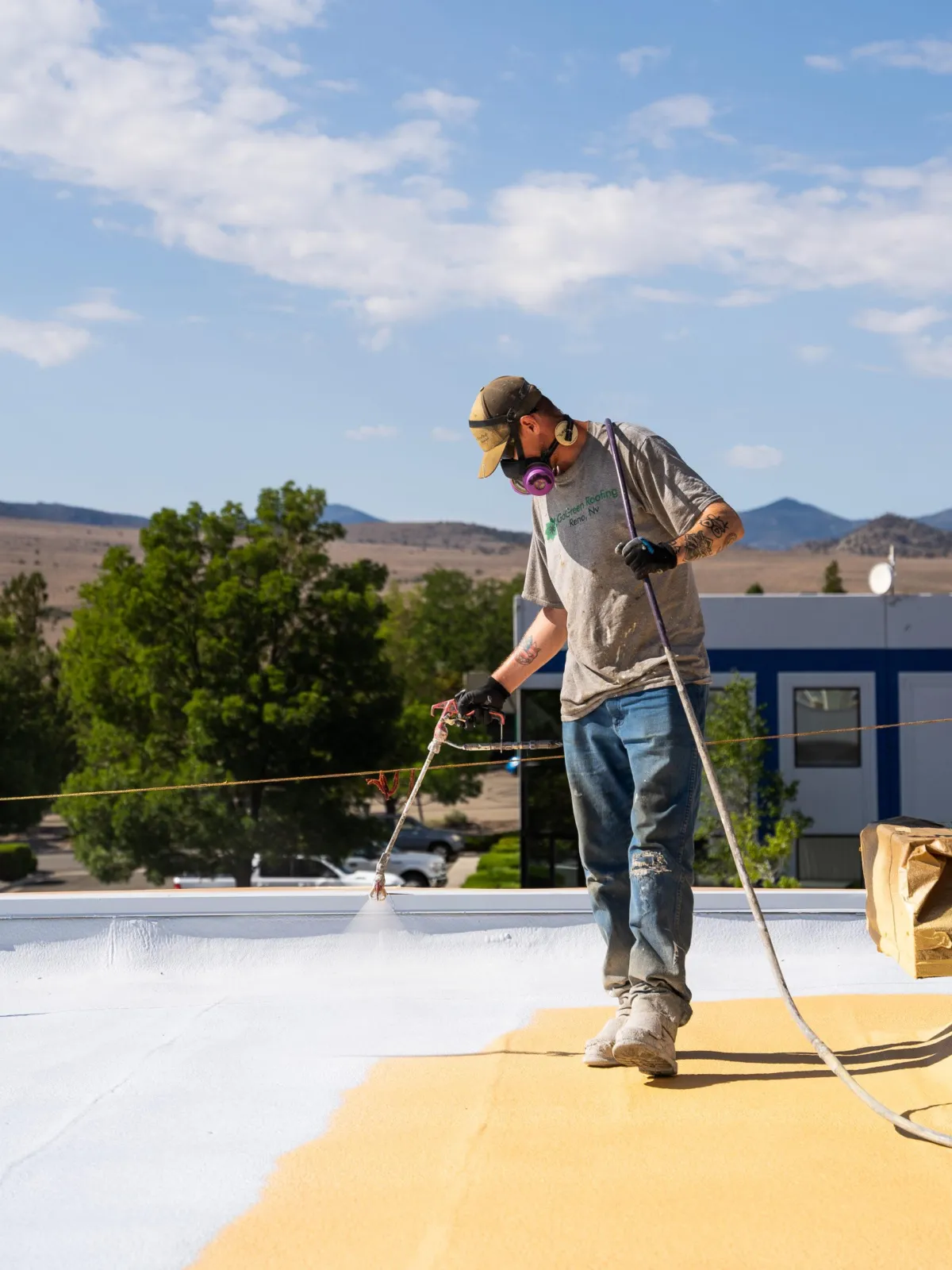
SPF (Spray Polyurethane Foam)
Composition & Installation: Applied as a liquid foam that expands into a solid, continuous layer, then protected with a UV-resistant elastomeric coating (such as silicone).
Advantages: Creates a seamless, fully adhered roof surface; excellent insulation and energy efficiency; lightweight.
Considerations: Requires precise temperature and weather conditions during installation; any damage to the protective coating must be repaired promptly to protect the foam core.

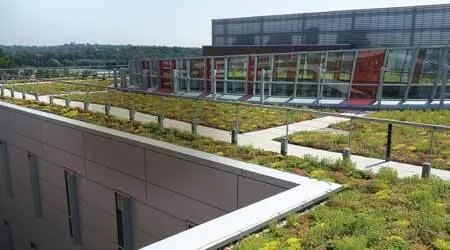
Green (Vegetative) Roof
Composition & Installation: Incorporates layers for waterproofing, drainage, root barriers, growing medium, and plant life.
Advantages: Improves energy efficiency by providing insulation; manages stormwater runoff; can increase biodiversity and reduce urban heat islands.
Considerations: Higher initial cost; specialized design and maintenance are required; structural support must be sufficient to handle the added weight of soil and plants.
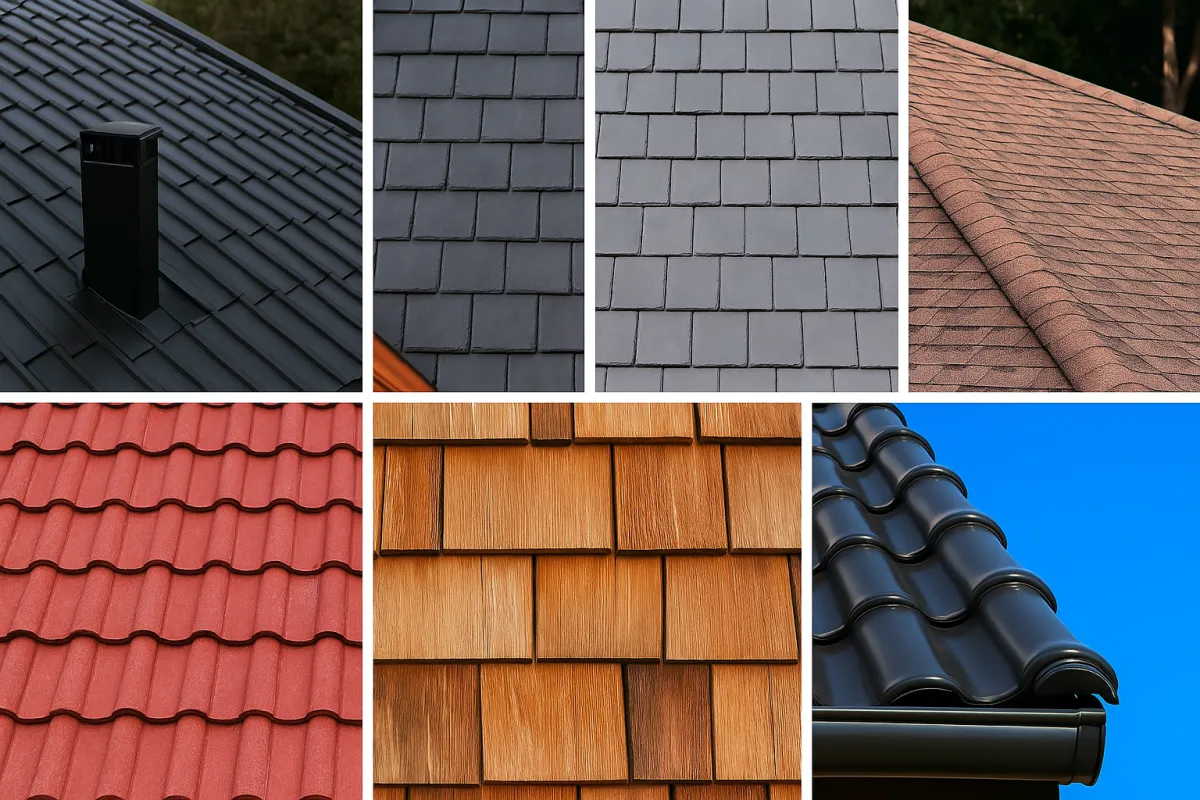
Shingles
Asphalt Shingles 3-Tab Shingles
Flat, uniform appearance with three evenly spaced tabs.
Typically the most economical option and widely used in residential roofing.
Wood Shingles and Shakes
Sawn on both sides for a more uniform, tapered shape.
Metal Shingles (Metal Roofing)
Standing Seam Metal Panels (not exactly “shingles” but often discussed together).
Stamped Metal Shingles that mimic the look of wood, slate, or tile.
Slate Shingles
Made from natural slate stone cut into thin pieces.
Extremely durable, often lasting 50 to 100+ years.
Distinctive, classic appearance that adds a premium look to a home.
Clay or Concrete Tiles
Traditional “Spanish” or “Mission” style curved tiles, though modern variants exist.
Synthetic or Composite Shingles
Often made from polymer blends, recycled materials, or rubber.
Designed to replicate the look of wood, slate, or tile without the same weight or cost.
Can be quite durable, UV-resistant, and low maintenance.
Solar Shingles
Also called photovoltaic shingles.
Integrate solar cells into the roofing material to generate electricity.
Generally more expensive upfront, but can reduce energy bills.
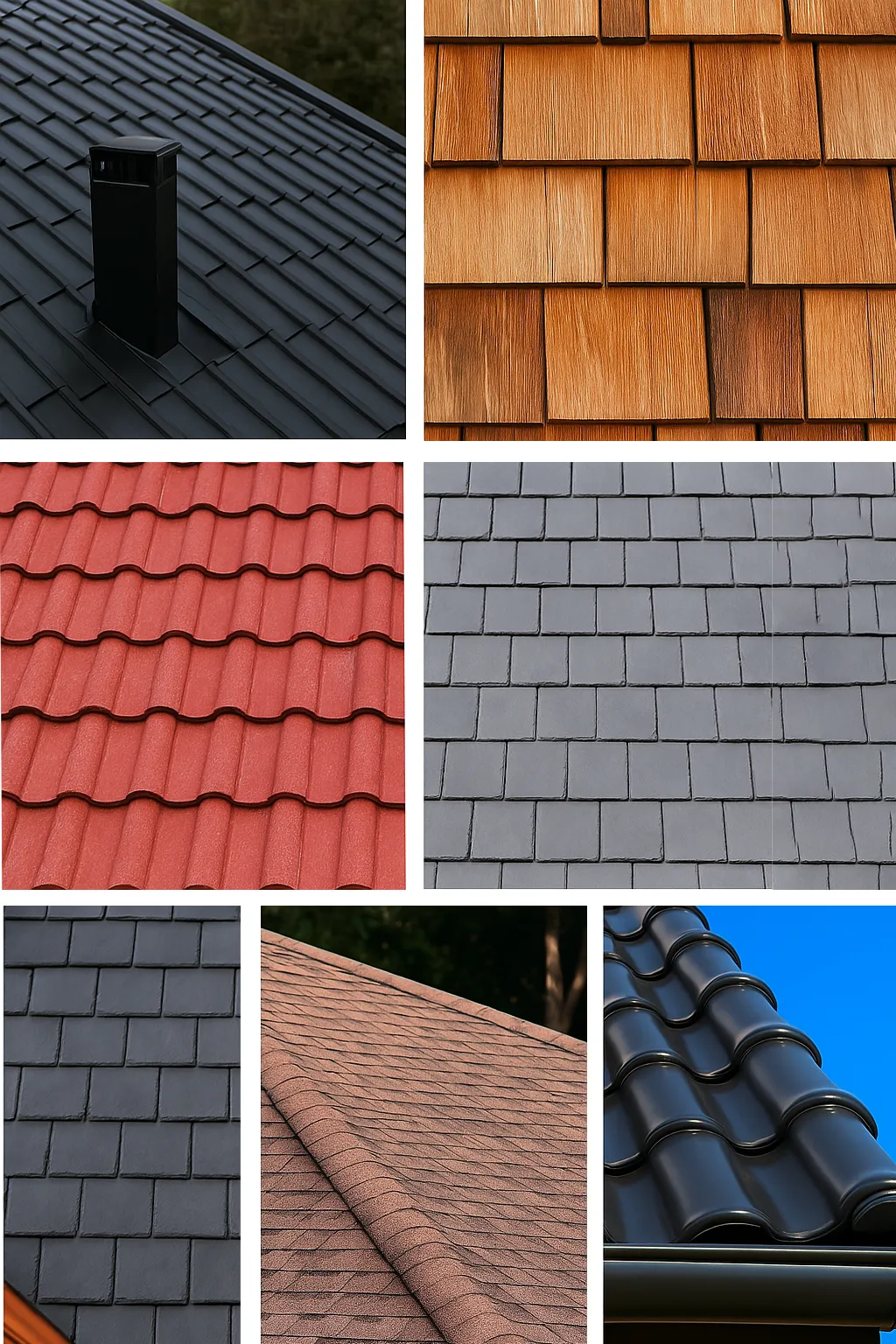
When “quotes” go through the roof
A proposal you can count on
JFR wants to rewrite the script on the roofing process with the customer in mind. Our proposals are detailed and technically sound yet easy for every customer to understand. Our numbers are accurate, and we almost always stick to our proposal because we take the time to search for hidden problems before we write the proposal rather than trying to increase the price of the contract midway through the job.

Accurate measurements
Our team actually gets on your roof for the most accurate measurements and up-close observations leading to highly detailed and accurate estimates.

Core sample
Knowing exactly what your existing roof is made of gives us the ability to find just the right roofing system for your building.

Thorough proposal
Knowing exactly what your existing roof is made of gives us the ability to find just the right roofing system for your building.
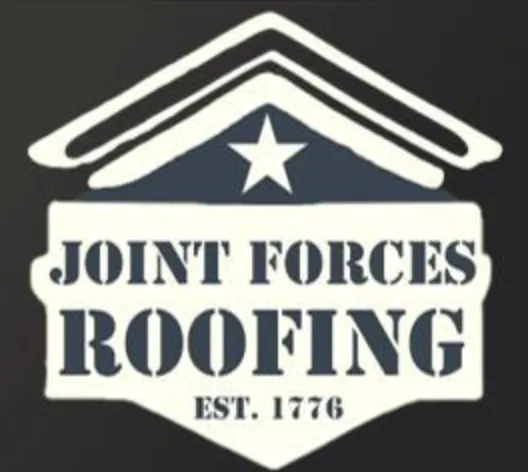

A division of Royalty Roofing USA.
As a full service roofing contractor, we offer preventative roof servicing and roof repair for all commercial and industrial roofing systems. We specialize in facility management, helping customers with multiple properties and locations with long term budget planning and analysis.
Why JFR
Commercial Roofing
Roof Repair + Services
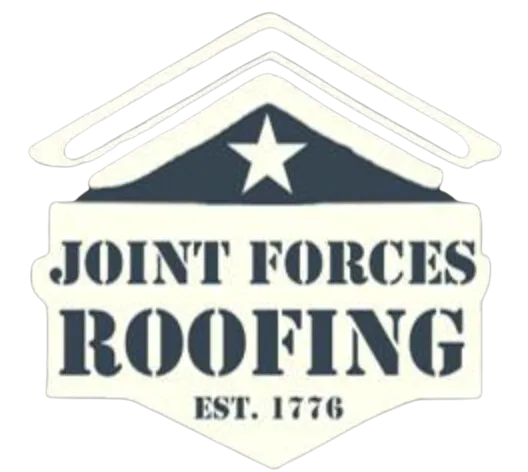
Managing a commercial building without a clear plan, can feel like navigating without a clear playbook. Let our team of prior military, proven roof experts help you with this critical aspect of your commercial building, so you can manage your building assets to their full potential.


